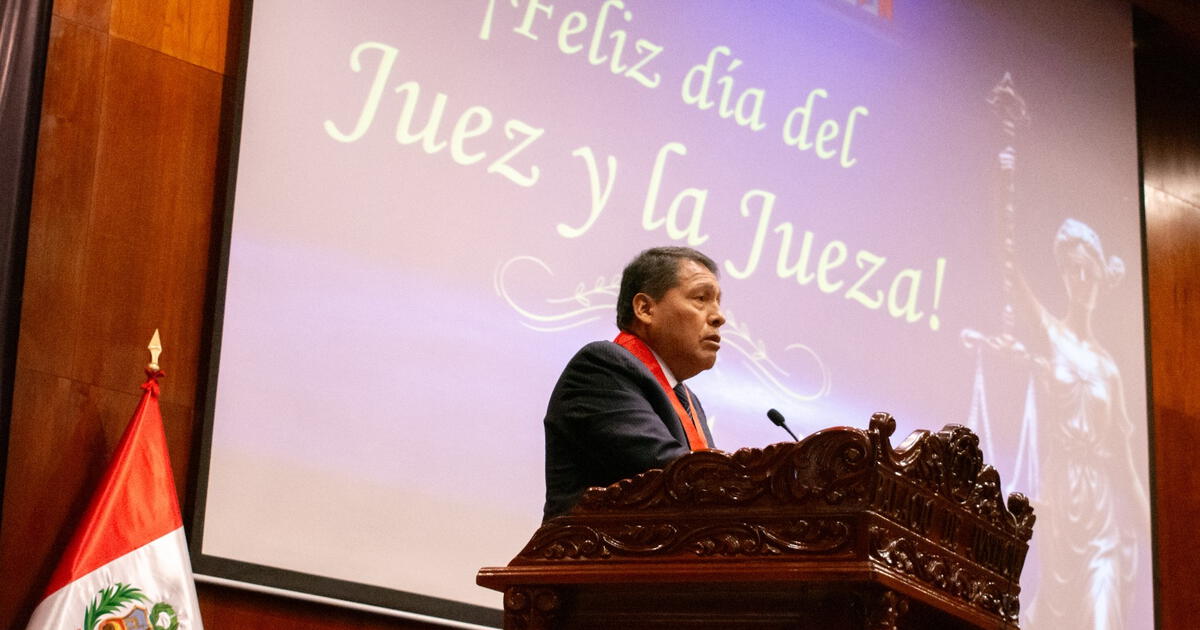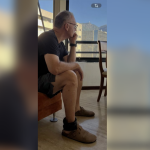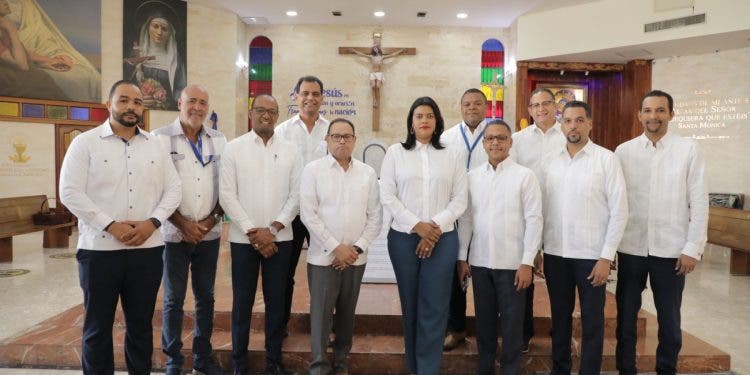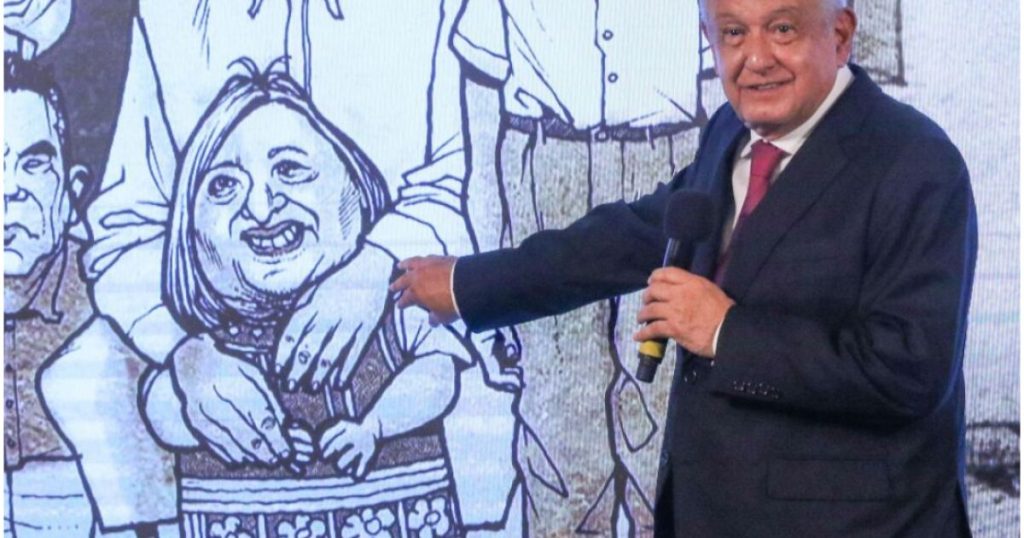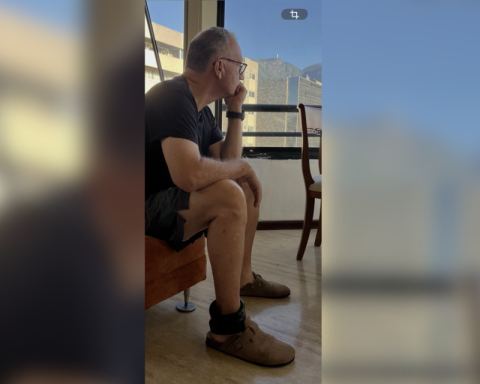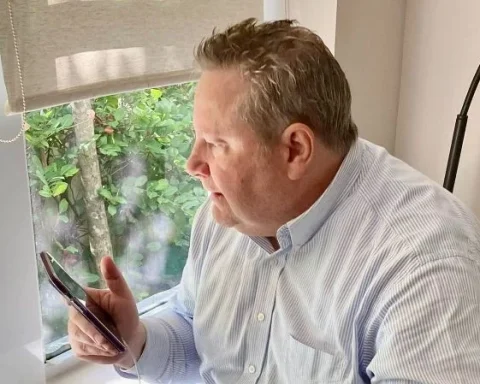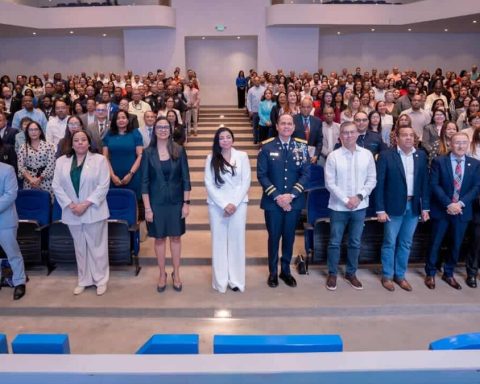There is an urgent need for more Collegiate Criminal Courts to speed up the trial of complex cases, such as Lava Jato, said the president of the National Superior Court of Specialized Criminal Justice (CSN), Octavio César Sahuanay Calsín, during the ceremony for Judge’s Day.
Sahuanay recalled that The CSN submitted to the Institutional Technical Team Unit (UETI) of the Criminal Procedure Code a proposal for one of the temporary liquidating criminal chambers to become a Collegiate Criminal Court“We understand that this situation is being evaluated, and we may have news soon,” he said.
A similar request was rejected in the past by the Executive Council of the Judiciary, headed by the president of the Judiciary Javier Arévalo Vela. The CSN had planned to convert and use the resources of the Fourth Transitory Liquidating National Superior Criminal Chamber into a collegiate criminal court.
The president of the Judiciary, Javier Arévalo, reported that the new headquarters of the Superior Court of Criminal Justice will be ready in December
However, The Executive Council transferred this jurisdictional body to the Superior Court of Justice of Punoas an Appeals Chamber. Thus, the SCJ was left without a transitional chamber and without a new collegiate criminal court.
Lava Jato trials
The president of the CSN still has faith that his proposal will be heard and that he will be given the resources he needs to move forward with the Lava Jato trials in Peru, among other complex cases. During 2023 and so far in 2024, eight processes have been prepared to begin the public trial and another 10 are in the intermediate stage of accusation control.
Among these cases are those of Juan Carlos Cevallos Ugarte by OSITRAN, Felix Moreno for Costa Verde Callao, Susana Villaran through contributions from Odebrecht and OAS, Los Doleiros, Martin Vizcarra by Obrainsa and Iccsa, Pedro Pablo Kuczynski by Westfield, Irsa Sur section 2, Jorge Acurio via the Cusco Bypass and Cesar Villanueva Arevalo for the Sisa-Cuñumbuque and Sisa-Bellavista projects in San Martín.
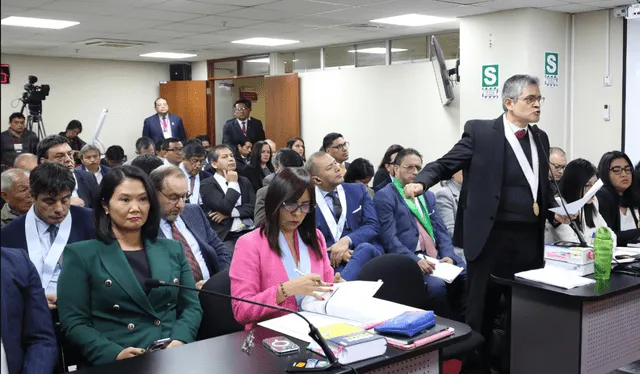
The Third Collegiate Criminal Court is handling the trials of Ollanta Humala, Keiko Fujimori and Fuerza Popular and is about to begin the process against the former regional governor of Cusco, Jorge Acurio Tito
The lack of collegiate criminal courts makes it difficult to start more trials. The First Collegiate Criminal Court, presided over by Judge Guillermo Huamán Vargas, is developing the mega trial of the network of Rodolfo Orellana Rengifo for money laundering. The Second Collegiate Criminal Court, presided over by Judge Zaida Pérez Escalante, is hearing the trial against the former president Alejandro Toledo for the Peru-Brazil Interoceanic Highway Corridor Project.
Meanwhile, the Third Collegiate Criminal Court, headed by Judge Juana Mercedes Caballero, has the trials former president Ollanta Humala for Odebrecht’s contributions to the Peruvian Nationalist Party, the Cocktails case against Keiko Fujimori and Fuerza Popular, and on August 22, the trial of the former regional governor of Cusco, Jorge Acurio Tito, for the Cusco Bypass will begin.
The Fourth Collegiate Criminal Court, presided over by Judge Fernando Ayasta Nassif, is developing the trial of Jorge Luis Cuba Hidalgo for the Lima Metro and is scheduled to begin the trial of the Former President Martin Vizcarra for the Lomas de Ilo and Moquegua Hospital case.
Elvia Barrios
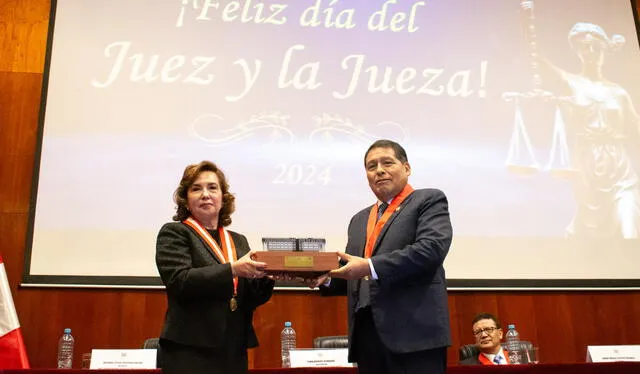
President of the CJN, César Sahuanay, recognized the work of Supreme Court Judge Elvia Barrios Alvarado
During the ceremony held by the National Superior Court for Judge’s Day, tribute was paid to the Supreme Court judge and former president of the Judiciary, Elvia Barrios Alvaradofor his contribution to the proper administration of justice.
Sahuanay Calsín said that Barrios Alvarado’s identification with the justice administration system, her participation in the embryonic phase of the CSN, her valuable support in consolidating it and her passion for the criminal specialty make her worthy of recognition.
Sahuanay Calsín gave the former president of the Judiciary a model of what the new institutional headquarters will be. The president of the Judiciary announced that In December, the new headquarters of this court will be handed over which is being built in block 1 of Uruguay Avenue, in downtown Lima.
Barrios Alvarado expressed her gratitude for the recognition “which commits her to continue working hard for a better justice service.” She emphasized that as a branch of the State, it is their responsibility to actively defend the autonomy of the Judicial Branch.
“It is not a question of autonomy being a corporatist shield. Autonomy is the reason for the existence of the judiciary as a constitutional guarantee. Citizens can breathe easy if they have an autonomous power and independent and impartial judges, because it is the expression of those counterweights necessary for national development,” he said.
Celerity
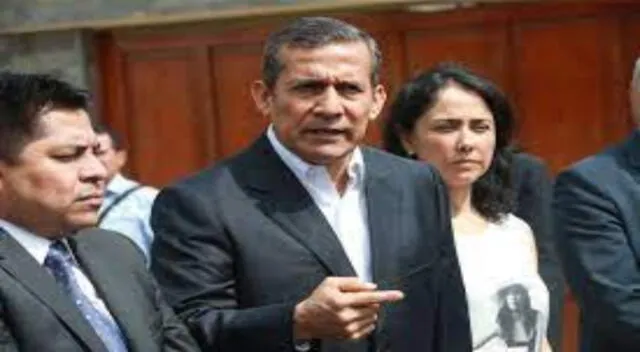
This year, the Third Collegiate Criminal Court will conclude the trial of former President Ollanta Humala
The president of the CSN reported that the judges of this specialized jurisdiction, in light of the concern expressed by the Executive Council of the Judiciary regarding the Lava Jato cases, They have made a commitment to conclude intermediate stages and oral trials in progress this year..
As regards the intermediate stage, it is projected that six cases will be concluded in the coming months, while four oral trials will be concluded, including those of former presidents Humala and Alejandro Toledo.
He stressed that the current administration has systematically surpassed previous standards. Today, there is a backlog of completed investigations that means that we have more than a hundred intermediate stages in the preliminary investigation courts.
Complex case management
He stressed that the methodology used to manage complex cases has changed favourably. The timeframes for resolving intermediate stages went from one year to three months; and today appeals can be resolved in one day, with debates and the reading of the ruling taking place in hours.
“I think it’s time to assimilate all the training sessions we’ve had in order to provide a response in tune with current challenges,” he said.
He reported that this year it is expected to exceed the number of trials concluded under the old Code of Criminal Procedure of 1940, using a reengineering of the scheduling of hearings – three speeds – where older processes require a greater number of hours of scheduling.
“The obligation is to expedite the jurisdictional response. It is a commitment and effort of the judges and jurisdictional staff that I appreciate.I note.
Wage deficit
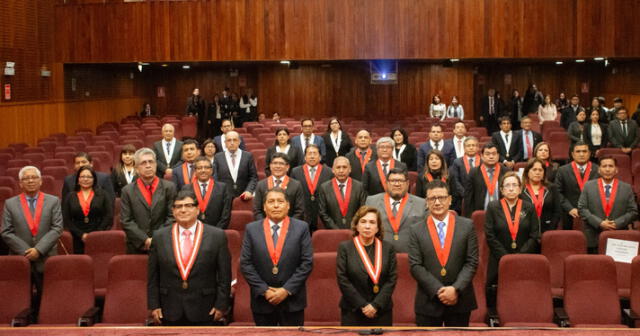
César Sahuanay asked the government to give decent remuneration to the workers of the Judicial Branch
On the other hand, he referred to the salary deficit of the workers of the Judicial Branch in relation to other institutions of the public sector. “All judges in Peru advocate that this unequal treatment ends once and for all. It is not possible that the workers of a branch of the State do not receive a salary in accordance with their delicate responsibility in the judicial system.”
He also called on the legislative and executive powers to harmonize their proposals within the framework of the Constitution and the laws that recognize the special status of the judge and the right to a decent remuneration. “This dignity of the judge, historically undermined, must cease.”
He addressed the bill approved by Congress and observed by the Executive, which establishes the percentages that superior, specialized and peace judges should receive, based on what a supreme judge receives and which is set out in its Organic Law.
“The approved law does not in any way violate the State Constitution or budgetary issues; on the contrary, it seeks to be fully effective,” he said.
